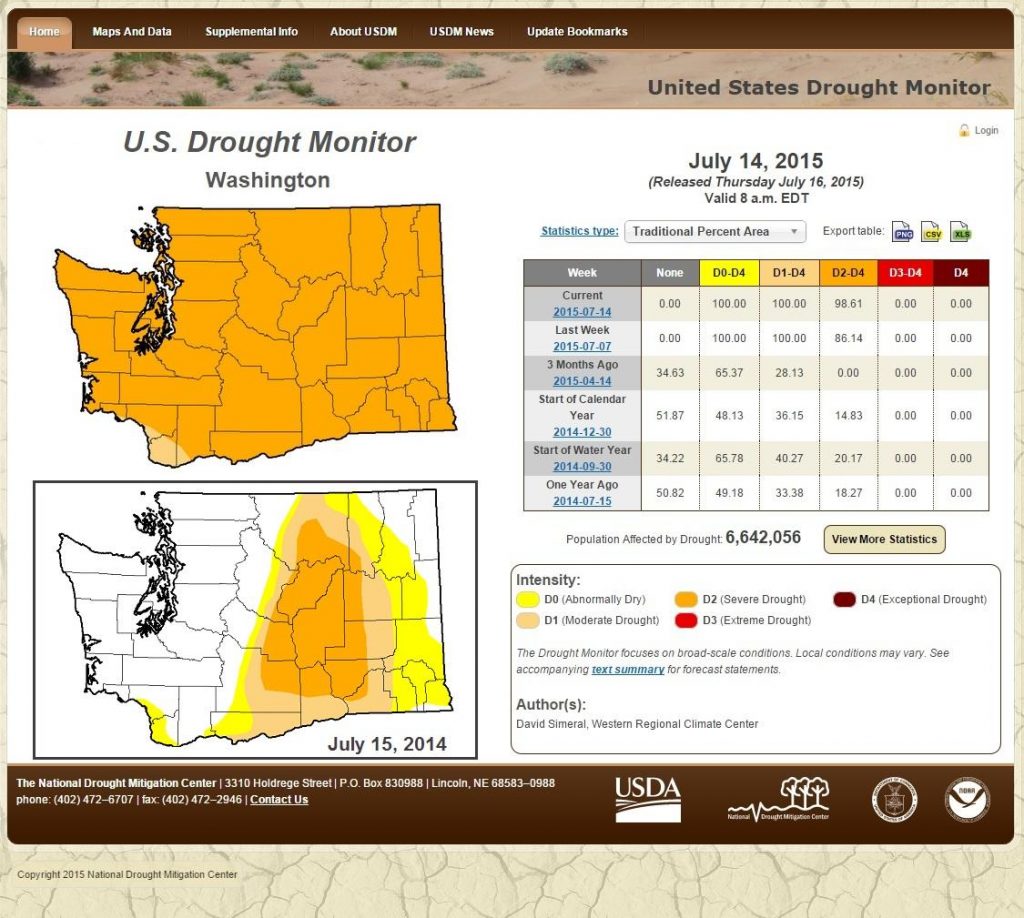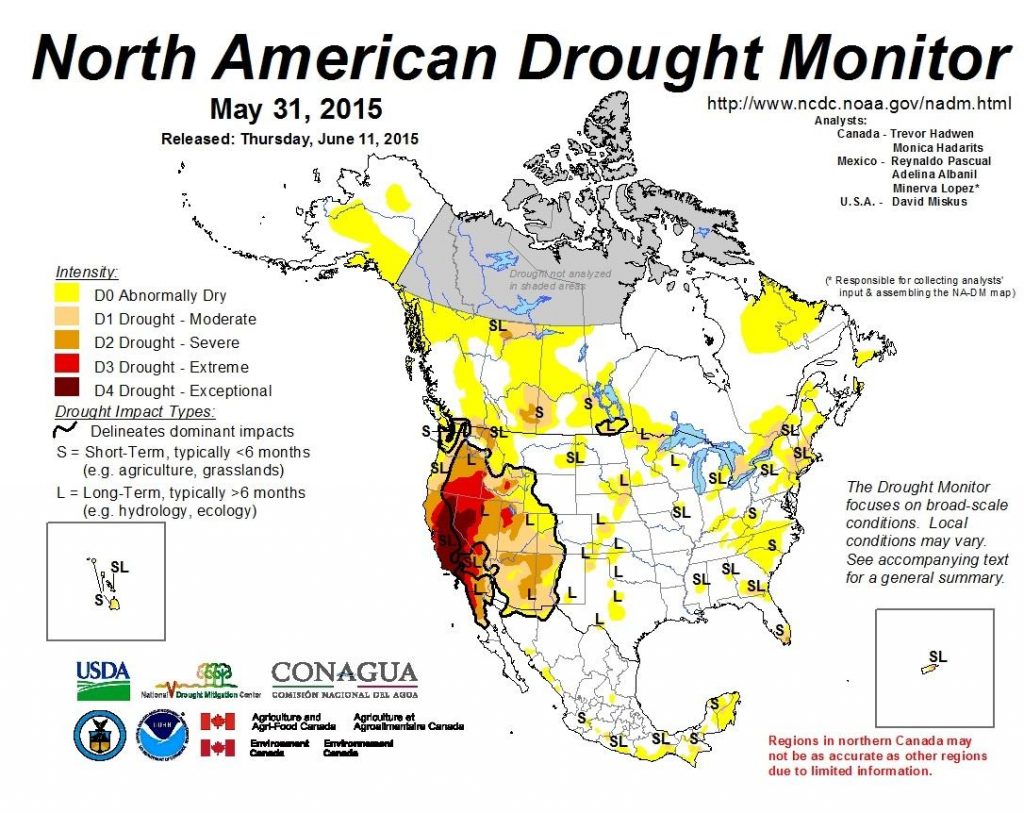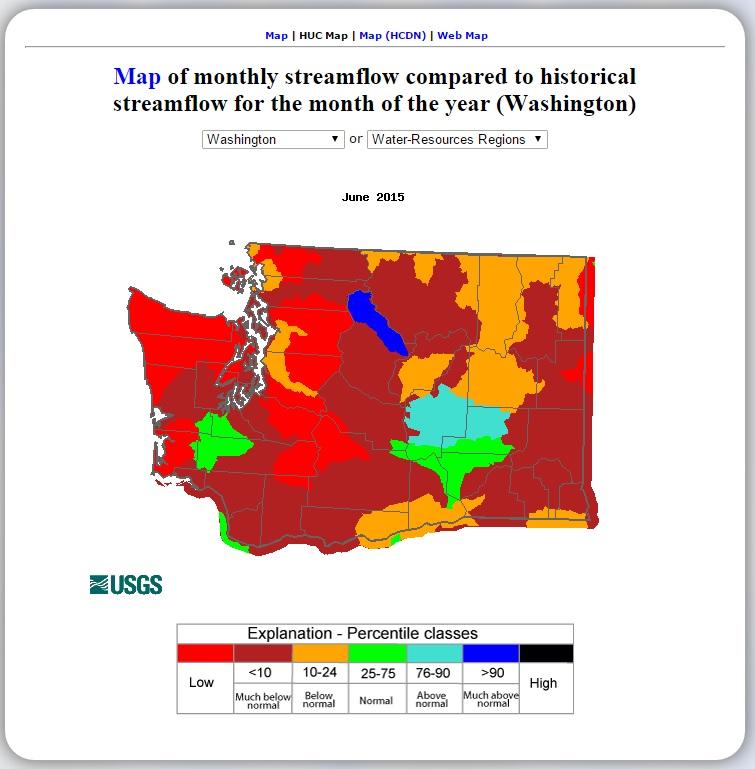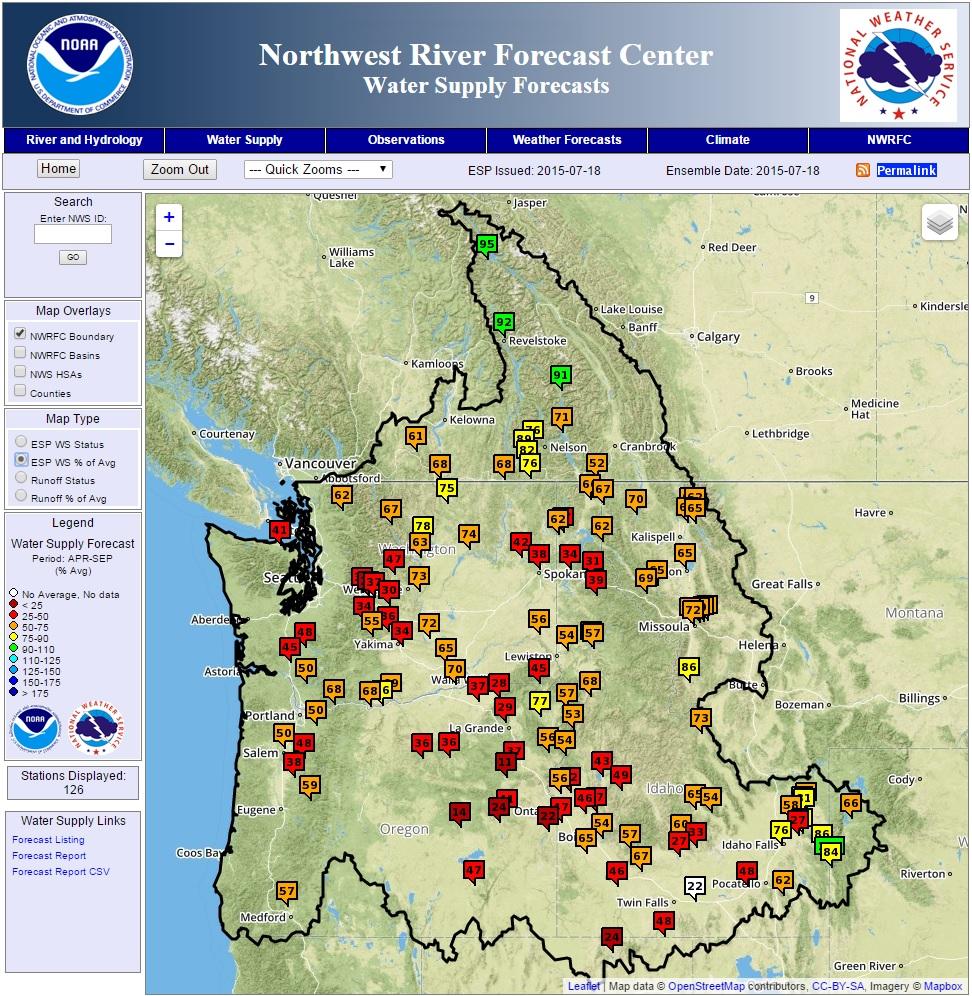After the Washington Legislature, heavily influenced by oil money, refused to move a carbon reduction plan, the Seattle Times has the audacity to lead with a headline that appears to disparage Governor Jay Inslee instead of legislators and their oil baron overlords. Ask the Seattle Times why a report that 98% of the state is in Severe Drought was relegated to a tiny 2-paragraph item on page B4, July 18, and is nowhere to be found on the Times website.

The Seattle Times is not the only organization that needs to get real, and stop hiding the fact that climate change is pounding our state in numerous ways; one would also have to include the majority of our legislators in Olympia, and I would add the power planners who keep trumpeting that the Columbia River system that powers most of the public utilities in our state is not affected by the drought.
As California struggles to keep hydropower resources in production, we should take note that there is a trend toward increasingly severe droughts in progress. Unlike Washington, California has enough solar and wind generation capacity to offset the 55% shortfall of hydropower due to drought. If there is a trend underway, it is difficult to predict how far it will go, but there is a philosophy known as the ‘Precautionary Principle’ that our power planners would do well to adopt. If they were to do so, natural gas would not be the ‘bridge to renewables’, renewables would be the bridge to renewables-with-storage. Instead of whining about the cost of solar, wind, and storage, our power planners and utilities would be insisting that carbon pay its way.

The Canadian watershed is not, as our BPA intimates, a limitless water resource. When will they take action to protect us from extended drought in the Canadian Rockies? Yes, we are like frogs in a slowly warming pot of water, BUT WE ARE NOT FROGS. We have enough brain power to know when the hell to do something about climate change. The question remains: Will we use our brains and do the necessary hard work to prepare for a hotter and glacier-less environment, or will we stick our heads in the increasingly dry sand and whine about costs?




